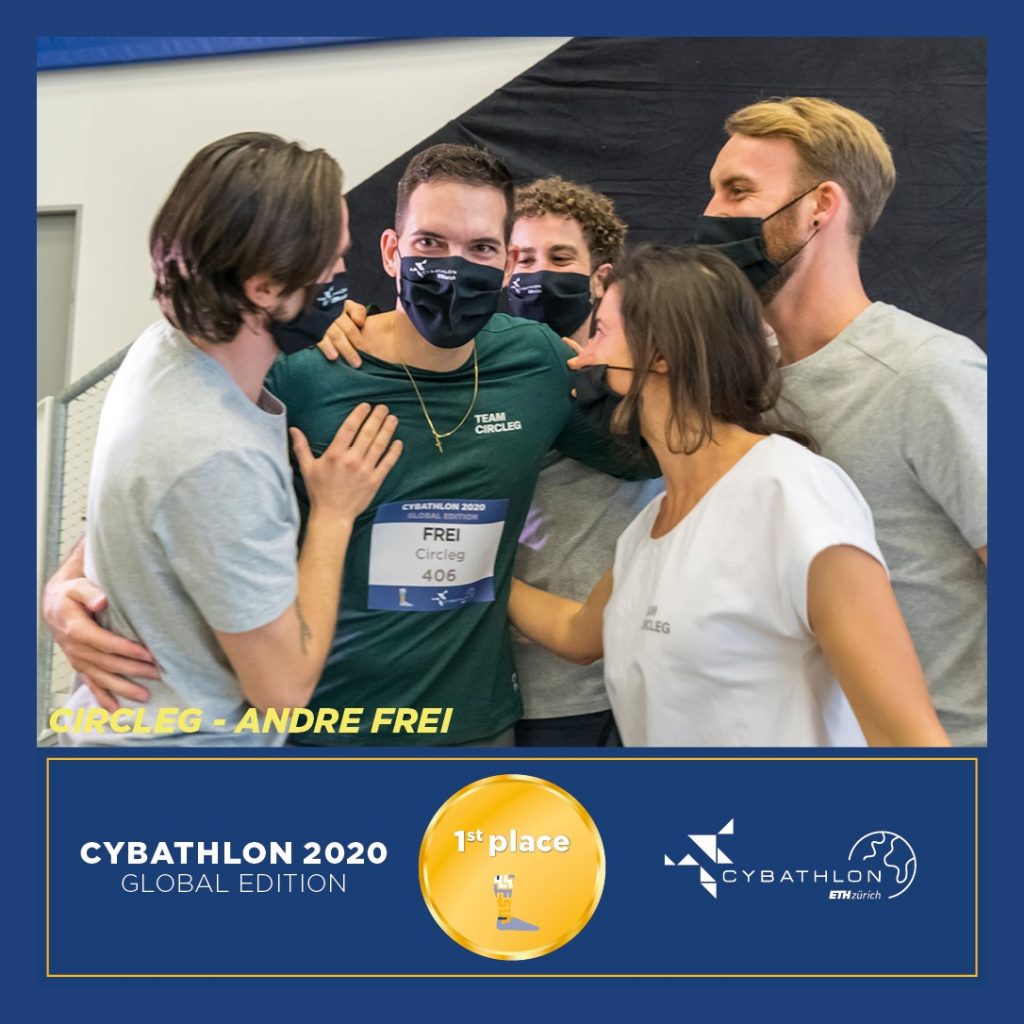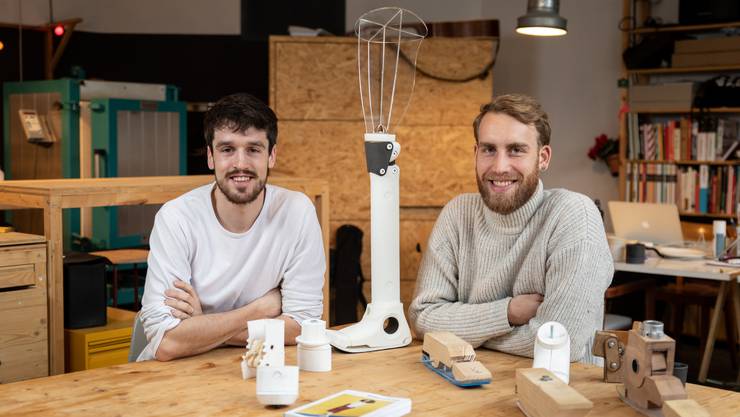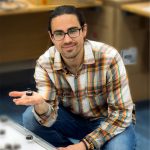
Robohub.org
#CYBATHLON2020GlobalEdition winners of the powered leg prosthesis race (with interview)

Winning team Circleg
Finishing this series of CYBATHLON 2020 winners, today we feature the victory of the startup Circleg from Switzerland. We also had the chance to interview them (see the end of this post).
In this race, pilots wearing a leg prosthesis from five teams had to complete a circuit using any kind of active/passive prosthesis. In the CYBATHLON organisers’ own words, “passive prostheses are primarily for cosmetic purposes and have few functional characteristics. So-called active leg prostheses can be controlled accurately thanks to innovative technologies. After a leg amputation, motorised prostheses allow users to do things like climb stairs more easily and walk up and down sloped surfaces successfully.” The challenge for the pilots was to complete the following tasks:
(1) Balancing cups and plates while sitting down and standing up to test leg strength in a confined space.
(2) Overcoming hurdles while carrying apples on two plates from one end to the other to test their bending ability and movement control of the knee joints.
(3) Transporting two buckets on a beam to test their ability to balance while moving forwards and backwards.
(4) Transporting balls and boxes to the other side of the stairs with only one foot on each step to test their ability to bend the knee joint, the motor power on the stairs, the precision of steps, their stability, all with limited vision.
(5) Crossing a tilted path in both directions while carrying plates with apples to test the bending ability and angle control of the knee and ankle joint.
(6) Balancing a plate with apples while ascending and descending a ramp to test the ability to bend knee and ankle joints, and their bending stability and motor power at the ramps.

Powered leg prosthesis race tasks
As with other disciplines, the top three races were very tight. Team Circleg with pilot Andre Frei completed the circuit in 2m 43s, giving them the gold medal. Only five extra seconds did take the Swiss silver medalist team, NeuroLegs with pilot Stefan Poth. The bronze medal went to the Polish team Contur 2000 with pilot Adrian Bak, finishing the race in 2m 57s. Here’s a summary of the races of the top 4 finalists:
You can see the results from the rest of the teams in this discipline here, or watch the recorded livestreams of both days on their website.
Interview to Simon Oschwald – Co-founder of Circleg
We had the pleasure to interview Simon Oschwald, one of the co-founders of the startup Circleg. Simon studied Industrial and Product Design at the Zurich University of the Arts.

Simon Oschwald (left) and Fabian Engel (right), co-founders of Circleg
D. C. Z.: What does it mean for your team to have won in your CYBATHLON category?
S.O.: To win the prosthetic leg race at the Cybathlon exceeded all our expectations! Participating in the Cybathlon was a huge milestone for our team and a great opportunity to present the Circleg and our vision on this global stage. It was important for us to be able to show that the Circleg, with its functionality, can support amputees for the various challenges they face in everyday life. Our pilot Andre has now definitely proven this by winning the Cybhatlon race! The performance of the Circleg at the Cybathlon 2020 is also a confirmation that we are on the right track with the development to ultimately achieve our vision of Freedom of Mobility for everyone. We are thrilled!
D. C. Z.: And what does it mean for people with disabilities?
S.O.: I hope that many Amputees worldwide will see the performance of the Circleg at the Cybathlon as a sign that even with limited financial means it is possible to achieve freedom of mobility. Together we can realize with Circleg a holistic and sustainable prosthetic care for the majority of amputees worldwide. See it as a promise from our side that we will give everything to turn this vision into reality!
D. C. Z.: What are still your challenges?
S.O.: There are quite a few: The transformation of Circleg Zero into a mass product, the development of the local production chain and, finally, the implementation of our business model. A sustainable prosthetic supply does not only consist of a functioning product, but also requires locally functioning production, high-quality support, repair and service facilities and appropriate financing mechanisms. With the Circleg we address all these issues an our interdisciplinary is extremely motivated to tackle these challenges!
tags: c-Research-Innovation, Competition-Challenge





